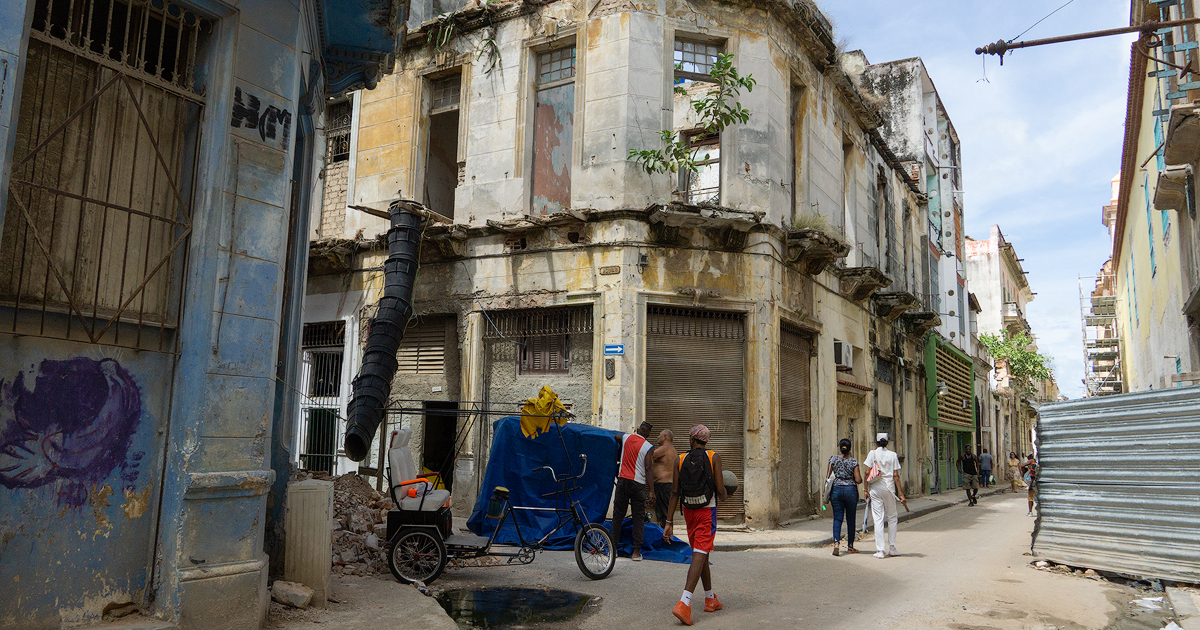Cuban economist and demographer Juan Carlos Albizu-Campos stated that Cuba is in the midst of a "humanitarian crisis," despite the regime's persistent denial of reality. "There is an emergency situation that goes beyond a health emergency. It is a humanitarian crisis. (...) It is serious, and the country is increasingly close to the point of collapse," he said in an interview with EFE.
On July 20, the Cuban Parliament approved the new Migration Law. During the presentation of the law to the National Assembly, the government acknowledged some alarming demographic indicators, such as a population decrease of more than 10% over three years. They indicated that the figures were not definitive or accurate because a Population and Housing Census is required, but they have not conducted one in 12 years, citing economic conditions as the reason.
Albizu-Campos, in his research, defends results that are even more devastating than those of the government. One of his recent studies indicates that Cuba has lost 18% of its population between 2022 and 2023 due to causes such as migration. The expert from the Christian Center for Reflection and Dialogue (CCRD) considers that the loss of nearly two million inhabitants since 2022 puts the country in "refugee crisis" figures.
He pointed out that indicators such as the increase in child poverty, maternal mortality, teenage pregnancies, and the decline in life expectancy in the country should be observed with concern. Currently, Cuba has a population below 10 million inhabitants, a significant percentage of whom are no longer of working age. The country is losing its productive forces, is aging, and is sinking into misery.
"The insistence on reforming the irreformable has eroded the system's metabolism and is leading it to a point of no return," warned Albizu-Campos. In his opinion, Cuba is in a polycrisis, "a cascade of crises that overlap and act in combination," causing it to drastically fall in the United Nations Development Programme (UNDP) Human Development Index (HDI), from 51st place in 2007 to 85th place today.
"We are still in the high HDI range, but we were approaching the very high range. Now we are approaching the medium range," said Albizu-Campos, warning that the next five years are crucial.
Impact of Cuban Migration
Regarding Cuban migrants, Albizu-Campos detailed that they have a very clear socio-economic profile: "57% are women, 77% are people between 15 and 59 years old with some purchasing power," the majority are individuals of working and reproductive age.
The exodus of young and reproductive-age adults will leave an impact on the Cuban population pyramid that may take many decades to reverse. The government's policies are condemning the population in 2024, but also those who will reside in the country in the next decade, as they will have to deal with problems such as the pressure on public accounts to support the number of vulnerable retirees they will have.
In Cuba, natural growth is negative; more people die than are born. This phenomenon is not new and, in the current context, is aggravated by a also negative migration balance. The population will continue to decrease for many more years, and if adequate economic changes are not made immediately, the "collapse" could be closer than the government considers.
FAQs on Cuba's Humanitarian Crisis and Migration
In light of the escalating humanitarian crisis and migration issues in Cuba, we have compiled some frequently asked questions to provide a deeper understanding of the situation.
What are the main causes of Cuba's population decline?
The primary causes of Cuba's population decline include high migration rates and a natural growth rate that is negative, meaning more people are dying than being born.
What demographic changes has Cuba experienced recently?
Cuba has experienced a significant loss of population, particularly among young and working-age adults, which has led to a rapidly aging population and a decrease in the country's productive forces.
How has the Cuban government's policy impacted its population?
The Cuban government's policies have exacerbated the humanitarian crisis, leading to increased migration, declining life expectancy, and higher rates of child poverty and maternal mortality.
What are the potential long-term impacts of the current crisis in Cuba?
The long-term impacts include a continued population decline, further economic deterioration, and increased pressure on public resources to support an aging population.
